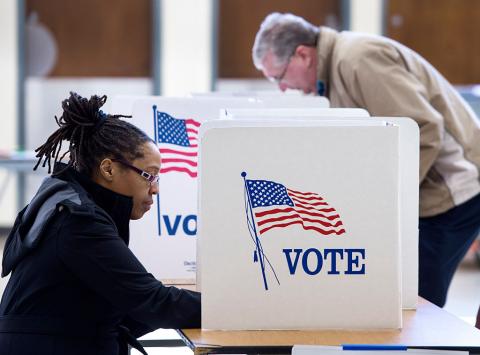
by and
There is no single story for women in American politics. Take election 2016 for example. Few have characterized last year’s election as good for women.
Whether because the first female nominee for president was defeated or because women saw little to no gain in representation across levels of office, the dominant gender narrative that emerged from last year’s campaign was hardly positive. But this story ignores important successes among women of color broadly, and Black women specifically.
In our latest report, we tell the electoral story that is unique to Black women in 2016. Black women were 3 of the 14 non-incumbent women elected to the U.S. House or Senate in 2016 (and the majority of female newcomers were Black, Asian, or Latina): Senator Kamala Harris (D-CA) became the second Black woman to ever serve in the U.S. Senate; Representative Lisa Blunt Rochester (D-DE) was the first woman elected to represent Delaware in Congress; and Representative Val Demings (D-FL) joined Florida’s congressional delegation.
Similarly, all of the net gain for women in state legislatures from 2016 (24.5%) to 2017 (24.9%) came from women of color, including a net increase among Black women state legislators from 257 (3.5%) to 271 (3.7%).
Related: Meet Kamala Harris, the Second Black Woman Elected to the U.S. Senate
For decades now, Black women have actually accounted for nearly all of the growth among Black state legislators nationwide. Finally, two Black women were also elected as mayors in the 100 most populous cities in America in 2016; they are Catherine Pugh, who became the third consecutive Black woman mayor of Baltimore, MD, and Sharon Weston Broome, elected in Baton Rouge, LA.
Another distinct – and less positive – story for Black women is their continued lack of representation in statewide elected executive offices. To date, just 11 Black women have ever held these offices, of which there are 312 nationwide.
Last fall, just four Black women were major party nominees for statewide elected executive offices, and none were successful. No Black woman has ever been elected governor. By comparison, 37 white women, one Latina, and one South Asian woman have served as governor. 535 women have ever served in statewide elected executive office, including governor; Black women represent just 2.1% of this number.
Read the entire story here.


